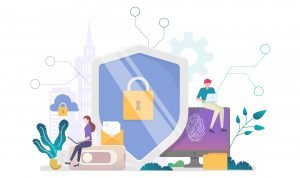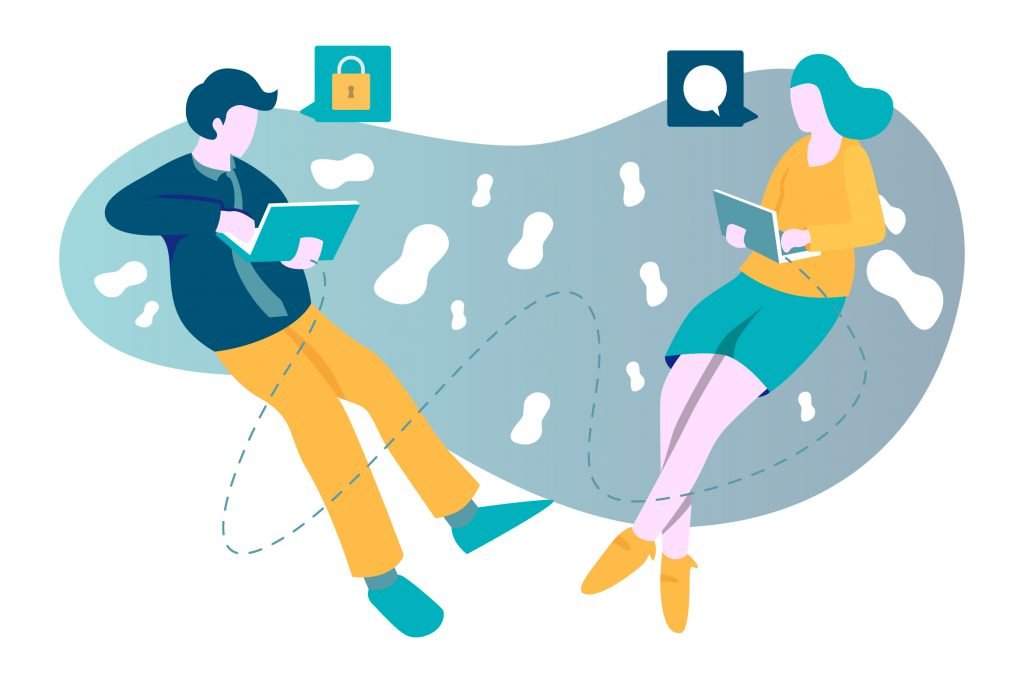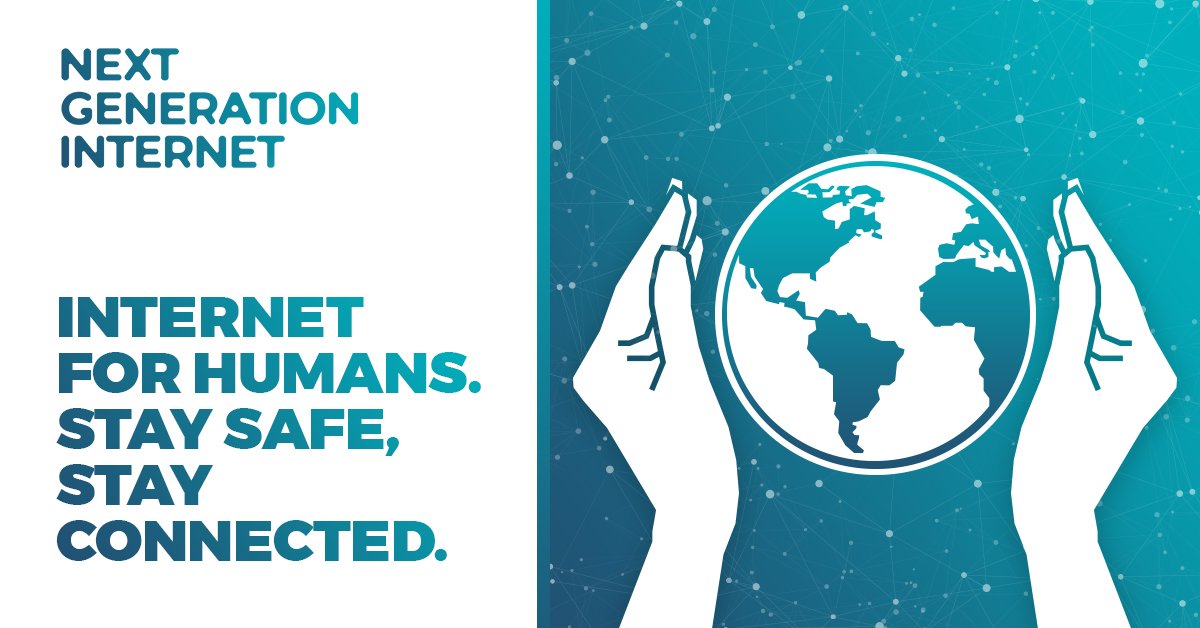 We are currently protecting ourselves against the Coronavirus, but are we protecting our data? Now is the time to switch to the privacy-protecting communication and collaboration tools developed by Europe’s top Internet researchers and innovators.
We are currently protecting ourselves against the Coronavirus, but are we protecting our data? Now is the time to switch to the privacy-protecting communication and collaboration tools developed by Europe’s top Internet researchers and innovators.
The European Commission has launched the Next Generation Internet initiative (NGI) to fund and mentor talented researchers and innovators, in order to develop the technologies needed for the Internet of tomorrow. After one year of operation, the first developments are available, offering trust, privacy-protection, security and inclusion, and a European open-source alternative to commercial off-the-shelf products.
Nowadays, many of us are working from home to slow down the spread of the COVID-19 pandemic. The NGI initiative develops and promotes open-source tools, well suited to our current situation of remote working and interactions.
The great thing about such tools is that they are under full control of the end-user whilst protecting our data, so we can discuss anything confidential to our business or intimate to our family. Even if parts of the Internet have become disconnected, these apps do not rely on the connection to a single provider, and many of them can run uninterrupted on our end-devices.
Here is a selection of solutions supported by NGI that can be used by anyone, anywhere.
Keep in touch via the Internet
Humans are social beings and ‘social distancing’ can make us feel isolated. It is important to keep in touch with others, and NGI supports several tools to do that.
 Sylk is an open-source serverless video chatroom. Sylk works instantly in any given browser, with no need to install software, no account required, all free of charge. Just follow these instructions on how to work with Sylk Server, use the unique name provided or rename it and share the link with the other participants. Sylk allows the user to give a presentation and share files with anyone in the session to download. For more information, visit https://sylkserver.com.
Sylk is an open-source serverless video chatroom. Sylk works instantly in any given browser, with no need to install software, no account required, all free of charge. Just follow these instructions on how to work with Sylk Server, use the unique name provided or rename it and share the link with the other participants. Sylk allows the user to give a presentation and share files with anyone in the session to download. For more information, visit https://sylkserver.com.
Note: The Sylk video chat room is designed for up to 10 people, more participants can join with audio only. If Sylk does not function in Safari (due to interoperability issues from Apple), switch to other browsers like Chrome, Firefox, Opera or Brave.
Blink is the solution to directly connect to people to have a chat, voice or video call. Blink is an open-source desktop app that offers even more functionality, such as remotely calling people and connecting to Internet telephony. For more information, visit https://ag-projects.com/blink/
Instant messaging
Delta Chat is like Telegram or WhatsApp, but without tracking or central control. Delta Chat does not need a phone number, nor does it even need servers. It uses the most widespread open messaging system ever: e-mail! For more information, visit https://delta.chat
Riot is a chat application that works on the Matrix protocol. It is possible to join a public Matrix server or set up one’s own. Riot.im is the Web interface, also available in app format. For more information, visit https://riot.im/app and https://matrix.org
Manyverse and Briar are two different offerings with a similar premise: sending messages without a server. Neither run in the cloud, instead they run on the phone of the end user. This way, they can be used offline and synchronise as soon as the phone is connected to the Internet. For more information, visit https://briarproject.org/manual/ and https://www.manyver.se/
Collaborating on documents
CryptPad allows us to collaborate on documents in real time, and is the tool of choice for remote teams as it is ideal for sharing an agenda, taking notes and agreeing on the action points of meetings. Unlike many online office applications, the documents cannot be read by the people running the service, because everything is encrypted on the computer before it is sent across the Internet. Again, no need for an account. Just start a new document and share the link. For more information, visit https://cryptpad.fr
Nextcloud provides a shared network folder. Users can edit documents together, share a calendar or task-list with colleagues, and use a wide range of extensions. Nextcloud can be deployed on-premises or used via a hosted version. Either way, the files are under the user’s control. For more information, visit https://nextcloud.com
WorldBrain is for people who feel overloaded with information and struggle to organise their online research effectively. Forget about keeping tabs open, bookmarking pages, or referencing articles in a commercial tool – with WorldBrain it is possible to highlight text, tag pages and add notes – in full trust that no one is collecting the data. For more information, visit https://getmemex.com
Remote access
WireGuard allows us to easily connect to remote networks. WireGuard is a simple and elegant VPN solution and its underlying technology has been proven to be highly secure. It works very quickly because it uses modern cryptography, so one does not have to sacrifice speed for security. It is part of the Linux kernel, but there are also apps for most platforms. For more information, visit https://www.wireguard.com
Let’s Connect! allows us to easily set up a scalable secure VPN service for an entire organisation. This is an elaborate and well-audited open-source VPN infrastructure solution. It was set up to scale (for hundreds of thousands, or even millions of people if necessary) and a lot of effort was put into making it easy to deploy. EduVPN, the ‘academic sister’ of Let’s Connect!, promoting VPN to international educational and research organisations. It offers apps for all major platforms. The key strengths of Let’s Connect! and EduVPN are their focus on security and strong cryptography, their integration with existing Identity Management Systems and their focus on privacy and GDPR compliance. For more information, visit https://letsconnect-vpn.org/ and https://eduvpn.org
Information about food
For most of us, being housebound impacts the way we eat. Convenience food is not our friend but being confined somehow makes unhealthy foods irresistible. If we want to maintain a balanced nutrition, we have Open Food Facts to discover everything we need to know for a healthy diet in times of isolation. For more information, visit https://openfoodfacts.org/
Neighbourhood action
In the unlikely case that the Internet were to become temporarily unavailable, all would not be lost. There are various tools available to work ‘Internet style’, but with local resources. For example, it is possible to set up a ‘neighbourhood Internet’ with Internet Cube at home. A small computer can become an Internet Cube which has file sharing and private mail. For more information, visit https://internetcu.be/
There are many more great projects supported by NGI, in fact, more than 200! The projects listed are just a selection of the most useful for remote communication and collaboration in the current times.
Stay safe and stay connected!
Download our NGI for COVID-19 press releases here below:
- NEXT GENERATION INTERNET: HUMAN-CENTRIC TECH IN TIMES OF CRISIS (ENG – pdf)
- NEXT GENERATION INTERNET: LA TECNOLOGIA AL SERVIZIO DELLE PERSONE IN TEMPI DI CRISI (ITA – pdf)
- NEXT GENERATION INTERNET: TECNOLOGÍA HUMANA EN TIEMPOS DE CRISIS (ESP – pdf)
- L’INTERNET DE NOUVELLE GÉNÉRATION: UNE TECHNOLOGIE AXÉE SUR L’HUMAIN EN TEMPS DE CRISE (FR – pdf)
- NEXT GENERATION INTERNET: MENSCHZENTRIERTE TECHNOLOGIEN IN KRISENZEITEN (DEU – pdf)
- NEXT GENERATION INTERNET: MENSGERICHTE TECHNOLOGIE IN TIJDEN VAN CRISIS (NL – pdf)
- INTERNET NOVEJ GENERÁCIE: TECHNOLÓGIE ZAMERANÉ NA ČLOVEKA V ČASE KRÍZY (SK – pdf)
- INTERNET NASTĘPNEJ GENERACJI: HUMAN-CENTRIC TECH W CZASACH KRYZYSU (PL – pdf)



